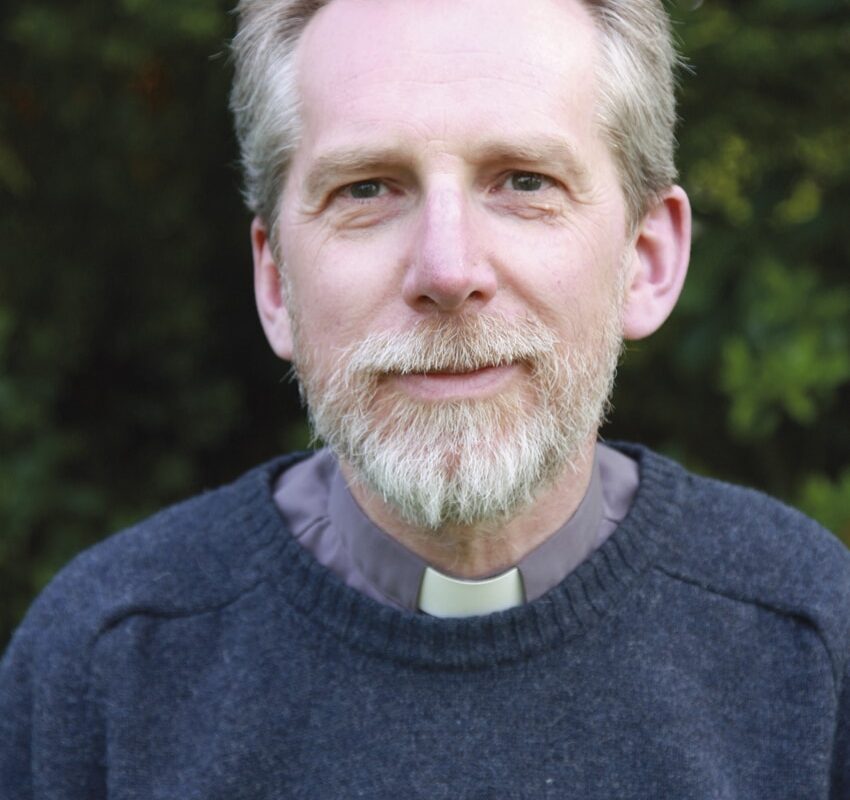An introduction to Disability History Month by John Beauchamp, our Diocesan Disability Ministry Enabler.
Disability History Month (16th November – 16th December) this year is highlighting issues of well-being for disabled people. This is particularly in the light of the Covid pandemic when disabled people died in disproportionately high numbers, and found themselves isolated for far longer periods than others because of clinical vulnerability. Although exacerbated by the pandemic, this was only a symptom of the marginalisation and isolation that many disabled people already experience in society. Disabled people are often struggling to get appropriate levels of care and support. They find that their voices are not heard or appreciated and their needs are not recognised.
20% of the population of the UK experience some sort of physical, cognitive, psychological or sensory issues that society labels as a disability. 70% of these conditions are hidden, 30% are more visible. But hidden or not, disability affects every aspect of a person’s life in some way. It is an experience that a disabled person can never escape from.
As we look for ways of growing within Vision 2030 that ‘every Londoner should encounter the love of God in Christ,’ it is important that we become aware of ‘every’ Londoner, especially those who are often invisible in wider society.
During Disability History Month, the diocese is calling all parishes to reflection and action. To reflect on how accessible our churches are and whether we are offering full belonging and participation to all people, especially those who are disabled. And to begin to take action towards making equality and justice for all, one of our highest priorities.
Christmas services
As we approach Christmas, this is a good opportunity to think about your Christmas services and events. How welcoming and accessible are they to those whose physical, cognitive and sensory shape means they experience the world in different ways to you? What could you do to make your services this Christmas more inclusive? You could also use the month to find out about disability in your parish. Are there any supported living projects, disability support groups, or disability advocacy services? Could you invite some of these groups to your Christmas services and make sure that people can fully engage with and participate in your worship.
To help you explore this, there are a range of resources available from the diocesan website. You can find these on the disability ministry area at:
https://www.london.anglican.org/support/ministry-and-vocations/disability-ministry
Quick wins
To make some quick and easy changes that will make a big difference to many disabled people, see the downloadable ‘Quick Wins’ sheet.
Most churches can make significant changes for under £500. These are often changes in admin processes, better training for welcome teams, training leaders and preachers to use more inclusive language, and thinking about how a wide range of people can or cannot engage with your worship.
Other resources will help you carry out an in depth audit of your church, explore disability theology, appoint a ‘disability champion,’ include useful access information on your website, create a disability focussed service, and much more.
Our faith
Taking action to become more inclusive and to offer greater belonging and participation to disabled people is fundamental to our mission as a church.
At the heart of our faith is the risen Christ. Risen but still bearing the wounds of crucifixion. Not cosmetic symbols but real disabling wounds that are taken into the very heart of God as Jesus ascends to the Father’s side.
To be a full representation of the Body of Christ today we need those wounds amongst us. We need the full breadth of the human experience, and we need that experience in all of its diversity and variety to shape us and change us to be more Christlike today.
Jesus’ destiny as the child in the manger is to walk the path to disability. Disability in which the fullness of God’s love for us all is starkly and startlingly revealed. The presence of those divine wounds in the bodies, minds and senses of disabled people today is a revelation of Christ in all of his fullness amongst us. The broken yet glorious body that as his church we aspire to be.
Watch out for the weekly blogs and a series of Disability and Ministry videos that will be published through the month.
